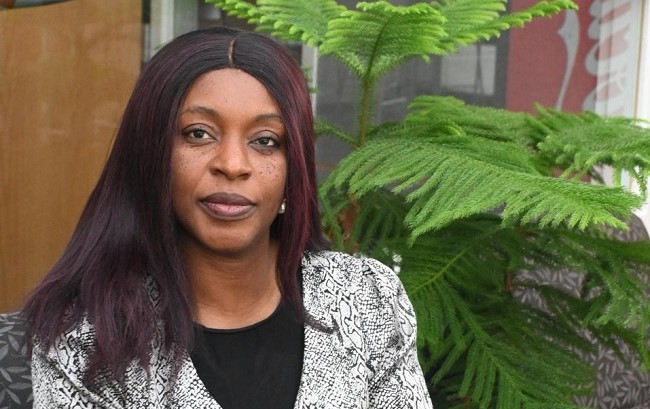In an era where the effects of climate change and environmental degradation are at the forefront of global concern, Ene Susan Ajonye is a name that stands out in the world of environmental science. A passionate advocate for sustainable development, Ajonye’s work in remote sensing, GIS, and climate change mitigation has garnered international recognition, making her a leading figure in the fight to protect our planet’s natural resources.

Professionally, Ajonye has made her mark at Nigeria’s National Space Research and Development Agency (NASRDA), where she has served as a Climate Modeling Researcher and Acting Head of the Climate Change Division. In these roles, she has led pivotal projects that apply space-based technology to environmental monitoring and climate change assessment. One of her most significant contributions is her leadership in the “Remote Sensing Assessment of Jabi Lake and Its Environs,” where she used satellite imagery to monitor land use changes and environmental degradation in one of Nigeria’s most critical water bodies. The project’s findings have proven instrumental in guiding urban planning and conservation policies in the region.
Ajonye’s academic contributions have been widely published in peer-reviewed journals, with a strong focus on the intersection of human activities and environmental change. Her groundbreaking research, “Mapping the Impacts of Anthropogenic Activities on Vegetation in the Area Councils of FCT using Remote Sensing,” brought much-needed attention to how urban expansion in Nigeria’s Federal Capital Territory has led to rapid vegetation loss. The study has been influential in shaping conservation efforts and urban development policies aimed at mitigating the negative impacts of urbanization.
Her expertise also extends into disaster management. In her acclaimed study, “Geospatial Assessment of the 2012 Flood Disaster in Kogi State, Nigeria,” Ajonye employed satellite data to assess the extent of flood damage in one of Nigeria’s most affected regions. The insights gained from this research have been crucial in informing disaster risk reduction strategies and improving preparedness for future flood events in Nigeria.
In addition to her work in vegetation dynamics and disaster management, Susan has contributed to the critical area of waste management. Her publication, “A Geo-Spatial Approach for Solid Waste Dumpsites for Sustainable Development in Minna, Niger State, Nigeria,” is a comprehensive analysis of urban waste issues and their environmental implications. Through geospatial analysis, she identified sustainable solutions for waste management, underscoring the vital role of GIS technology in urban planning.
Ajonye’s achievements extend beyond her research. As an educator and technical facilitator, she has trained numerous postgraduate students and national stakeholders on the application of remote sensing and GIS in environmental monitoring. Her teaching and mentorship have helped to cultivate a new generation of geospatial scientists and climate change researchers. In recognition of her contributions, she was awarded the Best Article Award for her research on Jabi Lake and received a scholarship from the Greenhouse Gas Management Institute, sponsored by USAID.
Her role as a thought leader is evident in her active participation in international conferences, including the Geoinformation Society of Nigeria (GEOSON) Conference, where she has presented her work on CO2 emissions and urban sprawl. These platforms have allowed her to influence global discussions on climate change, environmental conservation, and urban sustainability.
Despite her academic and professional accomplishments, Ajonye remains deeply committed to community service. She is an active member of Astronomers Without Borders, where she educates children in rural communities about space sciences, fostering interest in STEM fields among the next generation. She is also involved in voluntary support for vulnerable populations, providing aid to orphans and internally displaced persons (IDPs) in Nigeria, and offering her services to many orphanage homes.
What sets Susan Ajonye apart is her unique ability to bridge the gap between cutting-edge scientific research and real-world environmental challenges. Whether she is using satellite data to track flood impacts, assess vegetation loss, or design sustainable waste management systems, her work consistently demonstrates how science can be applied to create tangible, sustainable solutions. Her focus on using geospatial technology for environmental monitoring and climate change adaptation makes her a key figure in the global effort to protect our planet.
In a world that is grappling with the consequences of climate change, rapid urbanization, and environmental degradation, Ajonye’s work provides a beacon of hope. Through her research, leadership, and community service, she continues to inspire both her peers and future generations to take action in the fight for a more sustainable future. As she continues to push the boundaries of environmental science, her contributions are set to leave a lasting impact on how we understand and respond to the planet’s most pressing challenges.
With her ever-growing list of accolades and her unwavering dedication to environmental sustainability, Ene Susan Ajonye is a true champion of the planet. She serves as a powerful reminder that with science, innovation, and compassion, we can pave the way for a more sustainable and resilient world.
